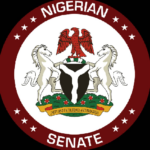The Executive Chairman of the Federal Inland Revenue Service (FIRS), Muhammad Nami, has said it refused to sign the Organisation for Economic Cooperation and Development (OECD), a G20 Inclusive Framework solution to the taxation of the digital economy, due to some of its provisions that would stop taxation of some digital companies.
In a statement by his Special Assistant on (Media & Communication), Johannes Oluwatobi Wojuola, Nami said the agreement is unfair to Nigeria and the developing countries, as most digital companies do not generate much revenue as proposed in the agreement before being taxed.
Terrorists kill 65 farmers, others in Katsina, Borno attacks
Lamido of Adamawa admonishes Muslims to fear Allah
“For instance, to be able to tax any digital sale or any multinational enterprise (MNEs), that company or enterprise must have an annual global turnover of €20 billion and global profitability of 10%. That is a concern. This is because most MNEs that operate in our country do not meet such criteria and we would not be able to tax them.”
“Secondly, the €20 billion global annual turnover in question is not just for one accounting year, but it is that the enterprise must make €20 billion revenue and 10% profitability in average for four consecutive years, otherwise that enterprise will never pay tax in our country, but in the country where the enterprise comes from, or its country of residence,” the statement read.
He noted that the rule for multinational enterprise to be taxed after generating at least €1 million turnover from Nigeria within a year would be unfair as domestic companies, with a minimum of above N25 million (€57,000) turnover, are subject to company income tax.

 Join Daily Trust WhatsApp Community For Quick Access To News and Happenings Around You.
Join Daily Trust WhatsApp Community For Quick Access To News and Happenings Around You.

